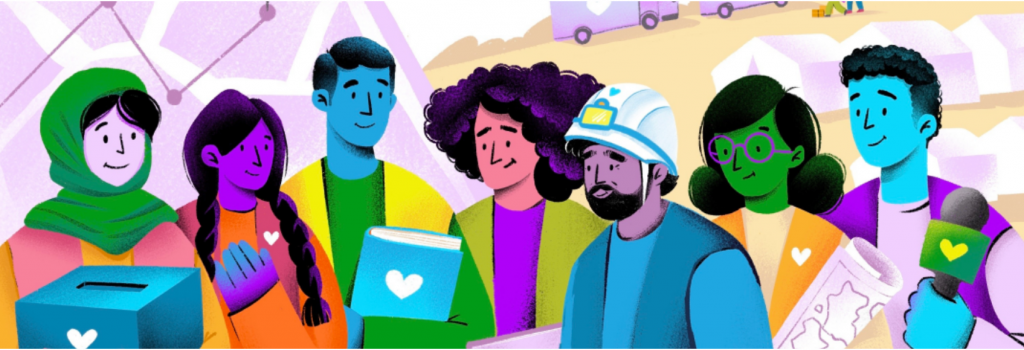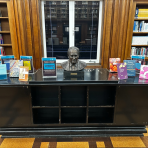
World Humanitarian Day on August 19 2024 honours humanitarian aid workers all over the world. Established by the UN in 2009, this day commemorates the anniversary of the bombing of the United Nations headquarters in Iraq. 22 people lost their lives, including the UN’s High Commissioner for Human Rights.
The holiday was founded by the United Nations General Assembly in remembrance of the deaths of 22 U.N. aid workers, including Sérgio Vieira de Mello, in a bombing of the United Nations Baghdad headquarters in 2003. Sérgio was born and raised in Brazil and worked day and night for three decades to aid victims of armed conflict by bringing them relief and making sure their plight was heard globally. He also worked tirelessly to assemble the draft for the appointment of World Humanitarian Day. Creating awareness was an essential aspect of Sérgio’s campaign, trying his best to ensure that those residing in First World countries and areas without conflict would gain a different perspective on war-torn areas, to show that there is more to it than just political conflict and death of combatants. In a way, Sérgio tried to bring a more humanitarian approach to viewing wars, focusing on the innocent human lives who struggled to survive and were caught in conflicts they had no desire to be a part of.
After this tragic incident, the Sérgio Vieira Mello Foundation and de Mello’s family worked closely with the Ambassadors of France, Switzerland, Japan, and Brazil at both the Geneva and New York tables, steering the draft to dedicate a special day through the General Assembly. In 2009, the United Nations General Assembly officially initiated the first World Humanitarian Day. It honours the brave relief workers like Sérgio who selflessly serve every day to make the world a better place for the underprivileged and those whose homes and livelihoods are threatened by war. In 2019, at least 483 relief staff were kidnapped, attacked, or killed, and the situation was no better in 2020 during the COVID-19 pandemic.
More recently seven aid workers from the World Central Kitchen (WCK) were killed in an Israeli air strike in Gaza the charity’s founder says. The victims were British, Polish, Australian, Palestinian and also included a dual US-Canadian citizen, WCK said.
Humanitarian aid workers provide life-saving assistance to suffering people all over the world. Those workers who live in conflict zones or in areas devastated by natural disasters are especially vulnerable.
The day pays tribute to the thousands of humanitarian workers who gave their lives and suffered injuries in the course of their work. Did you know that at one point in 2021, 235 million people in 26 countries required humanitarian assistance? This is the day to honour all those workers who continue their service to provide support and protection to people in need.
You can find out more here: https://about.worldhumanitarianday.org/
The Library collections contain print and online resources on the topic. Resources can be found by searching in the Library’s search tool, Discover. A selection of books on this topic are on display in the Library’s Reading Room as follows:
Allen, Tim, Anna Macdonald, and Henry Radice, eds. Humanitarianism: A Dictionary of Concepts. London: Routledge, 2018. Print.
Blaikie, Piers M. At Risk : Natural Hazards, People’s Vulnerability, and Disasters. London ; Routledge, 1994. Print.
Clements, Bruce. Disasters and Public Health. Butterworth-Heinemann, 2009. Print.
Gunn, S. William A, and Michele Masellis. Concepts and Practice of Humanitarian Medicine. New York, NY: Springer, 2008. Print.
Gunn, S. William A, and Michele Masellis. Humanitarian Medicine : A Compilation of Leading Articles in the `Journal of Humanitarian Medicine’, 2000-2004. Palermo: International Association for Humanitarian Medicine Brock Chisholm, 2005. Print.
Hopperus Buma, Adriaan P. C. C. Conflict and Catastrophe Medicine : A Practical Guide. 2nd ed. / editors, Adriaan P.C.C. Hopperus Buma … [et al.]. New York ; Springer, 2009. Print.
Kapur, G. Bobby, and Jeffrey P Smith. Emergency Public Health : Preparedness and Response. Sudbury, MA: Jones & Bartlett Learning, 2011. Print.
Keen, David. Complex Emergencies. Cambridge, MA: Polity Press, 2008. Print.
Mosse, David, ed. Adventures in Aidland : The Anthropology of Professionals in International Development. First paperback edition. New York: Berghahn Books, 2013. Print.
Rockenschaub, Gerald, Jukka Pukkila, and Maria Cristina Profili. Towards Health Security : A Discussion Paper on Recent Health Crises in the WHO European Region. Copenhagen: World Health Organization Regional Office for Europe, 2007. Print.
Wieland, Carsten. Syria and the Neutrality Trap : The Dilemmas of Delivering Humanitarian Aid through Violent Regimes. London: I.B. Tauris, 2021. Print.
Zetter, Roger. World Disasters Report 2012 : Focus on Forced Migration and Displacement. Geneva: International Federation of Red Cross and Red Crescent Societies, 2012. Print.









